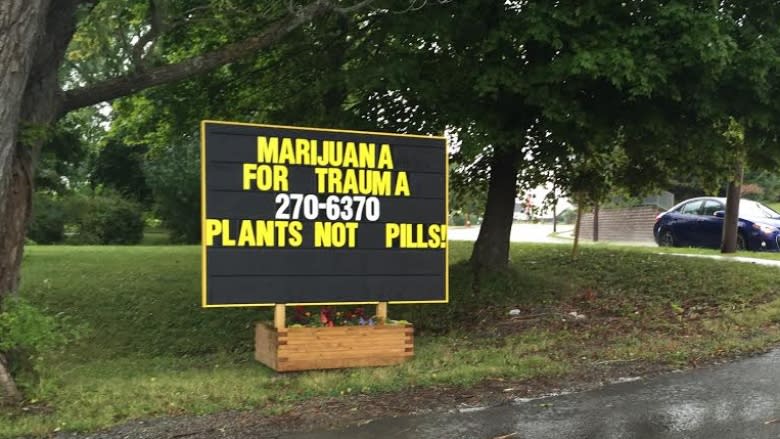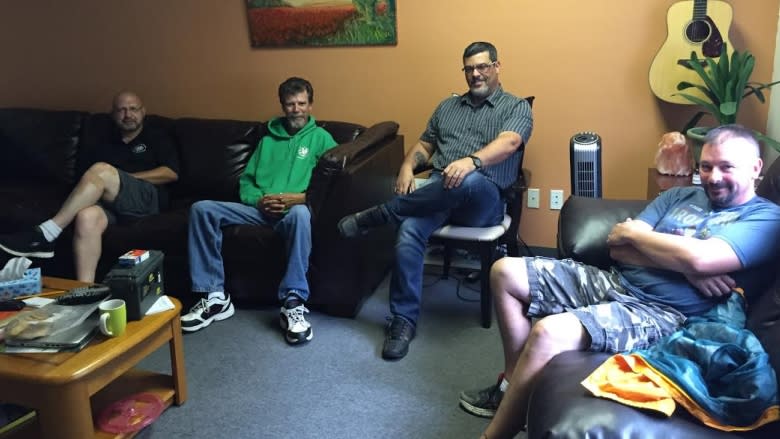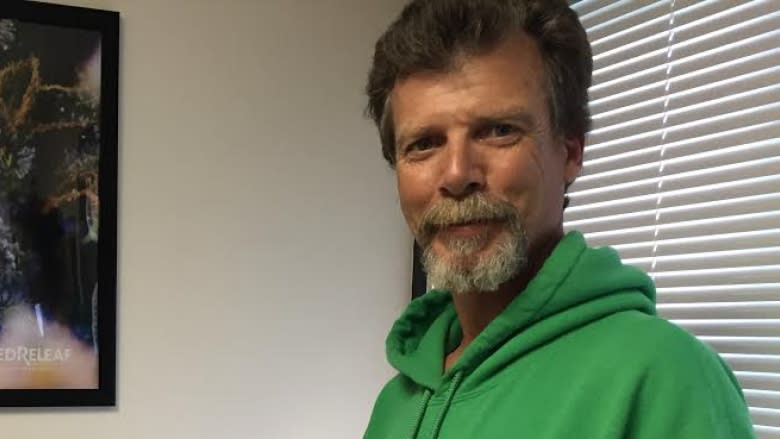Sydney marijuana clinic serving more than 400 clients after 1 year
A large "Plants Not Pills" sign faces busy Kings Road in Sydney, N.S., the slogan for the chain of Marijuana for Trauma clinics.
Marijuana for Trauma was founded in Fredericton with the goal of helping veterans dealing with post-traumatic stress disorder.
That was the plan when the group opened a facility in Sydney last year, but it soon began branching out.
It now offers its services to civilians interested in finding out more information about the uses of medicinal marijuana.
From pills to pot
"We aid in the treatment of many afflictions, from chronic pain, PTSD, Crohn's, colitis, cancer, arthritis and many others," said Joe Bisson, who runs the Sydney franchise.
In the military, Bisson survived an explosion in Iraq in 1991. He says he had so many prescriptions to help him cope with his PTSD that one point he was taking more than 1,200 pills a month. Now he uses only marijuana.
Using marijuana for medical purposes has been a hot topic of debate, with many doctors remaining ambivalent about prescribing the drug for chronic pain.
The Sydney Marijuana for Trauma franchise was just the second such clinic in the country when it opened. There are now 13 clinics across Canada, but the Sydney facility remains the only one in Nova Scotia.
It serves clients from New Brunswick, Newfoundland and Labrador, Prince Edward Island and Nova Scotia.
The client list in Sydney has grown from 80 in September of 2015 to more than 400 clients.
"Around 420," a volunteer joked, laughing at his reference to what's known as the "international smoke-up time" in pot circles.
'Adults making an informed decision'
The personnel at the clinic, though, are serious about what they do and feel they are serving a growing need.
"This is not 18-year olds eating hash brownies at a Friday night party," Bisson said.
He and others at the centre are determined to help people get the help they need.
"This is adults making an informed decision about their choice of medicine and, when used properly, it can treat a host of diseases and afflictions and it's natural."
Quality of life
Hubba Parris, 70, is one of those adults.
"I haven't felt this good in 35 or 40 years," says the well-known singer from Whitney Pier on Cape Breton.
He did research on marijuana because his wife, Trina, suffered from chronic pain.
He began giving his wife an extract of marijuana formulated for pain relief instead of a high.
"Behold, her pain subsided and she's been on that ever since," he said.
Parris himself has diabetes and three years ago was diagnosed with cirrhosis of the liver related to his medication. He now takes marijuana capsules in the morning and sometimes in the evening.
"I have bad legs also and I take [marijuana] for pain, and since I started that my pain has subsided."
Parris said his diabetes medication went from 12 pills a day to two.
"People want to get away from the prescription pills and try the marijuana because the side effects of the prescription pills sometimes outweigh the benefits," he said. "So this is where I went and I'm quite content that I went there."
No gateway
Bisson has no worries that marijuana for pain might be a gateway drug.
"The pharmaceuticals in your medicine cabinet are far more gateway drugs, when you look at how most people get on the harder drugs," he said. "They start with a prescription for an opioid, that runs out and they turn to the street for an alternative. You run out of marijuana, you're not going to snort coke to replace it."




